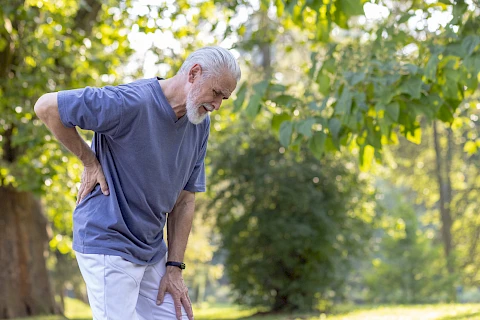
Caring for the bone health of our seniors is of utmost importance, yet it's a topic steeped in myths and misconceptions. These falsehoods can make caregiving more complex and even negatively impact the health of our loved ones. In our quest to understand and promote optimal bone health, we must separate fact from fiction.
Myth 1: Seniors Don't Need Regular Exercise for Bone Health
When it comes to bone health, there's a common misconception that seniors do not need regular exercise. However, regular physical activity is crucial for maintaining and improving bone density in people of all ages, including seniors. In fact, exercises like weight-bearing and resistance training can help build and maintain bone mass, reducing the risk of osteoporosis. It's essential to choose age-appropriate and safe exercises, like walking, gentle yoga, or swimming, which can be easily incorporated into a senior's routine. You should check with your doctor before starting any new form of exercise.
Myth 2: Dairy Is the Only Source of Calcium
Many believe that dairy products are the only source of calcium, a crucial mineral for bone health. However, several other foods are rich in calcium. These include leafy greens like kale and spinach, fish like salmon and sardines, and other foods like tofu and almonds. Ensuring a diverse diet can contribute to fulfilling the daily calcium requirement for seniors, which can help maintain their bone health.
Myth 3: Bone Density Loss Is Inevitable With Age
While it's true that bone density tends to decrease with age, it is not an inevitable part of aging. Lifestyle choices can significantly influence bone health. Regular exercise, a balanced diet rich in calcium and vitamin D, and avoiding harmful practices like smoking and excessive alcohol consumption can help maintain or even improve bone density in seniors. It's never too late to start these healthy practices and ensure better bone health.
Myth 4: Only Women Need to Worry About Osteoporosis
Osteoporosis is often perceived as a women-only health issue. However, men are also at risk. According to the National Osteoporosis Foundation, up to one in four men over the age of fifty will break a bone due to osteoporosis. It's essential for both genders to take preventative measures such as engaging in weight-bearing exercises, maintaining a balanced diet that promotes bone health, and having regular check-ups.
Myth 5: Vitamin D Isn't Important for Bone Health
Vitamin D plays a crucial role in bone health. It helps the body absorb calcium, thereby maintaining bone strength and reducing the risk of fractures. Despite this, Vitamin D's importance for bone health is often overlooked. Seniors can get enough vitamin D through moderate exposure to sunlight, eating foods rich in vitamin D like fatty fish or fortified dairy products, or potentially through supplements if recommended by a healthcare professional.
Senior Helpers Greenfield Helps Seniors And Their Caregivers Manage Bone Health
An informed understanding of bone health can make all the difference when providing care for our seniors. We've debunked some common myths and highlighted the importance of exercise, a balanced diet, both genders' attention to bone health, and the essential role of Vitamin D.
At Senior Helpers Greenfield, we believe in providing quality care based on accurate information. If you're in the Greenfield, Indianapolis, or Anderson areas, reach out to us.